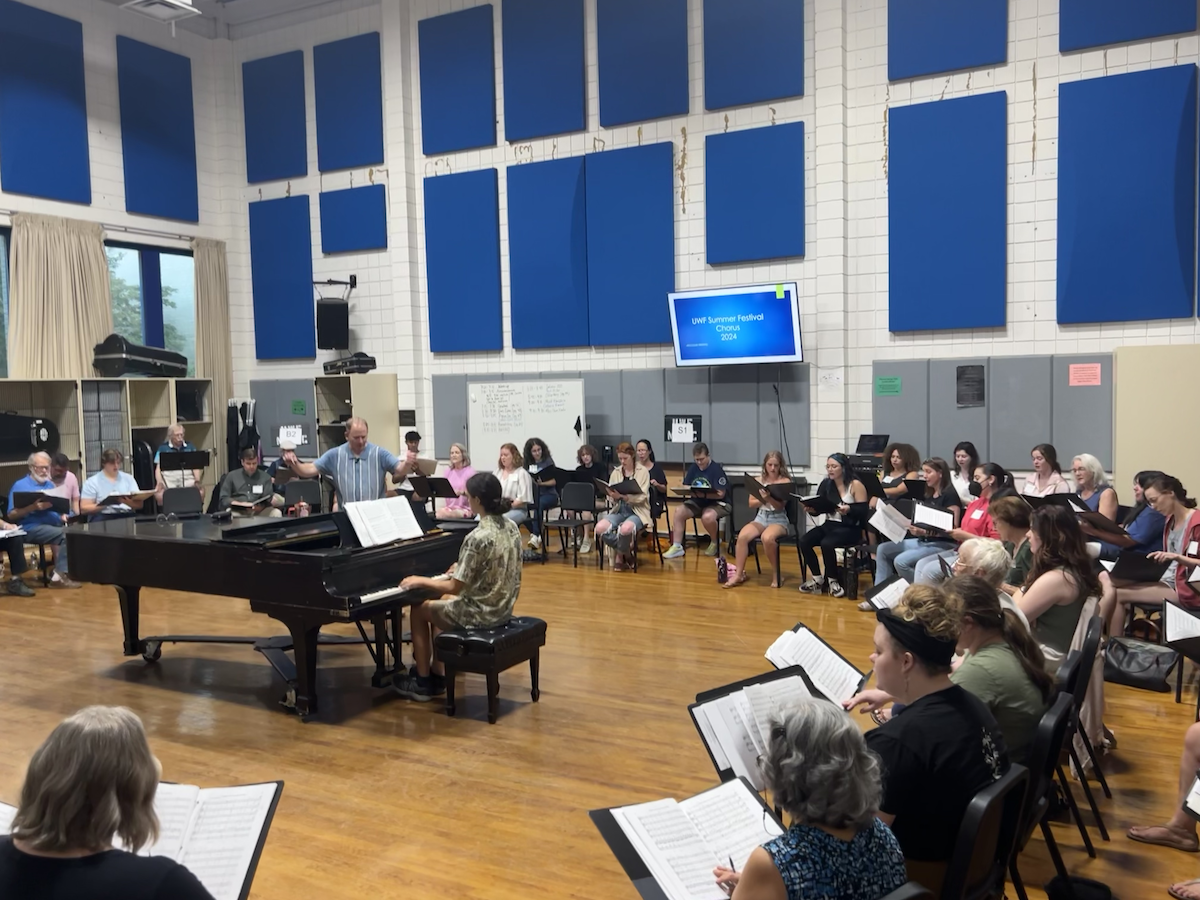
UWF Dr. Grier Williams School of Music Summer Festival Chorus Unites Generations
The Dr. Grier Williams School of Music’s Summer Festival Chorus continues to foster artistic communities and unite members across generations.
Vantage Points offers student and alumni stories, research and creative activities, and topics of public discourse from UWF's College of Arts, Social Science and Humanities.

The Dr. Grier Williams School of Music’s Summer Festival Chorus continues to foster artistic communities and unite members across generations.
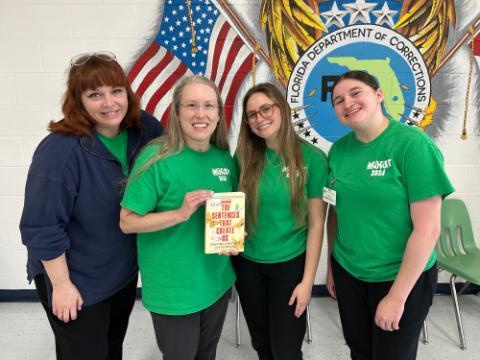
Discover how the University of West Florida College of Arts, Social Sciences, and Humanities faculty and students are collaborating to promote literacy and creative writing skills among incarcerated individuals in Florida. Learn about the Reading Writing Group and the Prison Book Project, which were started by UWF faculty and supported by UWF students.
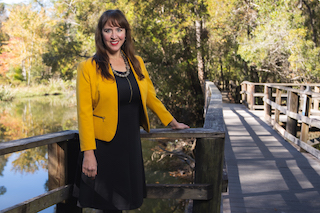
Dr. Allysha Winburn, an associate professor of anthropology at the University of West Florida and Diplomate of the American Board of Forensic Anthropology, recently worked on the Carlisle Barracks Disinterment Project, leading her to explore her beliefs about the field of anthropology.
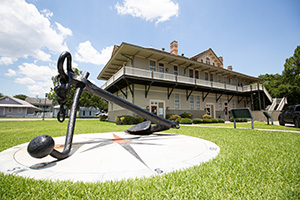
Florida Public Archaeology Network welcomes Dr. Mary Furlong Minkoff as the organization’s new executive director.
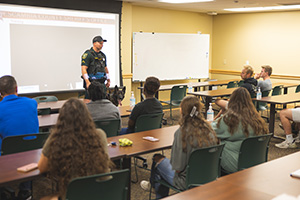
The UWF College of Arts, Social Sciences and Humanities is proud to welcome the Department of Criminology, Criminal Justice and Legal Studies. The new department will house three undergraduate programs, four undergraduate minors, two undergraduate certificates and a graduate program. These will include Criminal Justice, B.A.; Interdisciplinary Social Sciences, B.A. in Child & Society; Legal Studies, B.A.; Minor in Criminal Justice; Minor in Juvenile Justice; Minor in Forensic Studies; Minor in
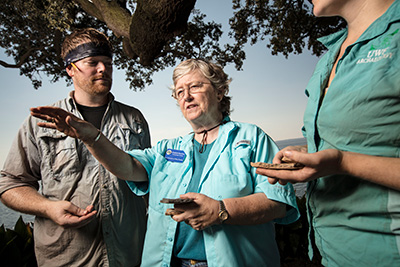
The University of West Florida bids congratulations and farewell to Dr. Elizabeth Benchley, director of the UWF Archaeology Institute. Benchley came to UWF in 1997 and is now retiring after many years of service.
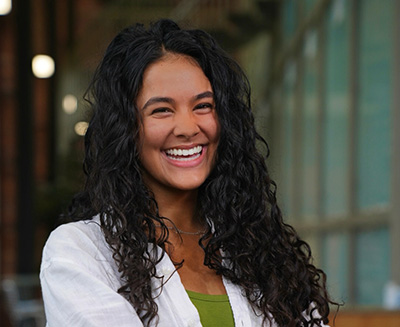
This summer, Elizabeth Royappa, communications major and honors student, has been putting her voice to work in Washington D.C. The Kugelman Honors program fully funded Royappa to attend the Special Education Legislative Summit in Washington D.C., which was held July 9-12th.

Joe Vinson is a ‘23 UWF alum who recently received an M.A. in History with a specialization in public history. His achievements and contributions to public history have gained prominent exposure.
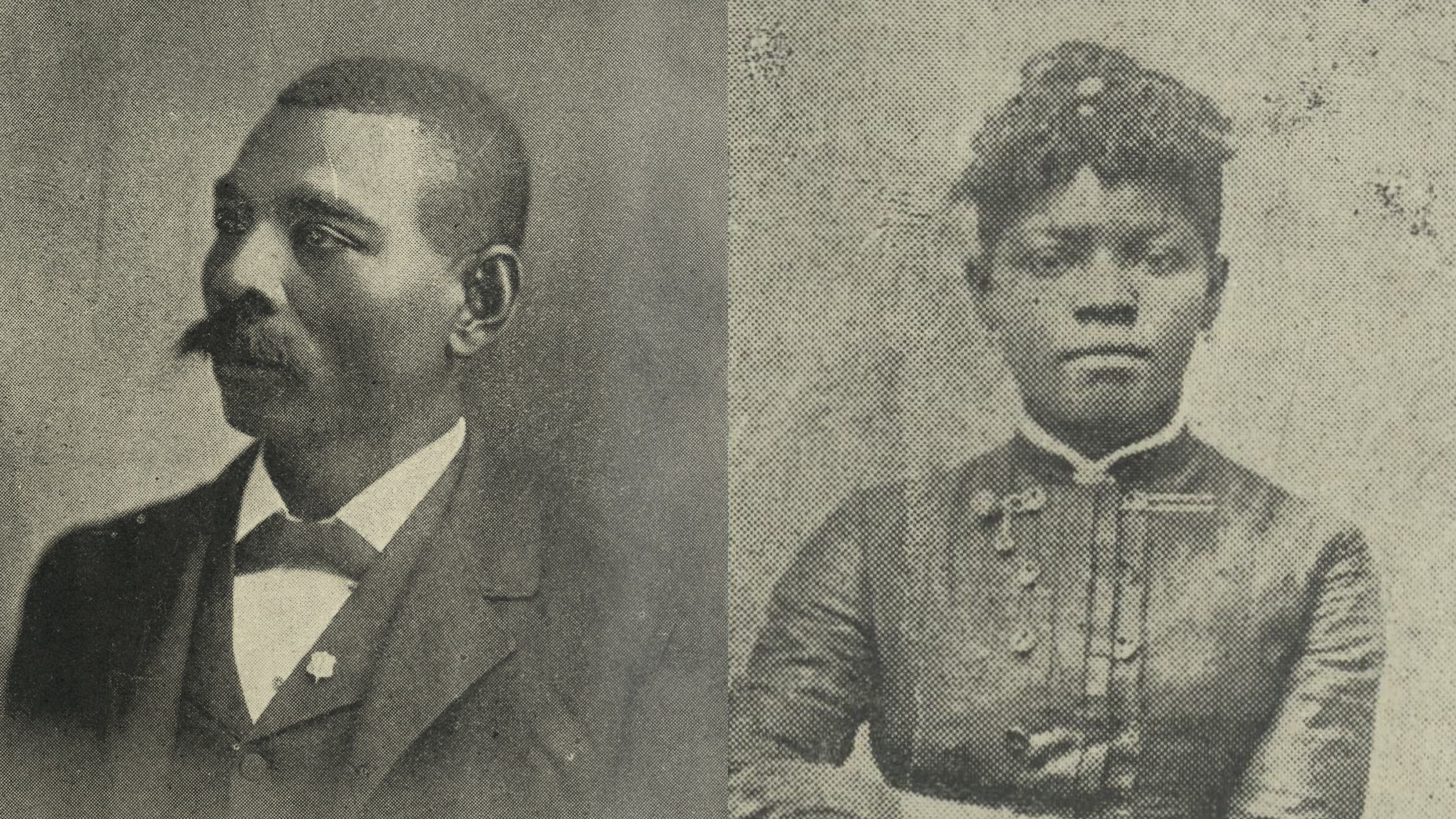
“Righting the Past” is working to preserve the memory and dignity of those who passed by writing obituaries for local citizens who never received them.
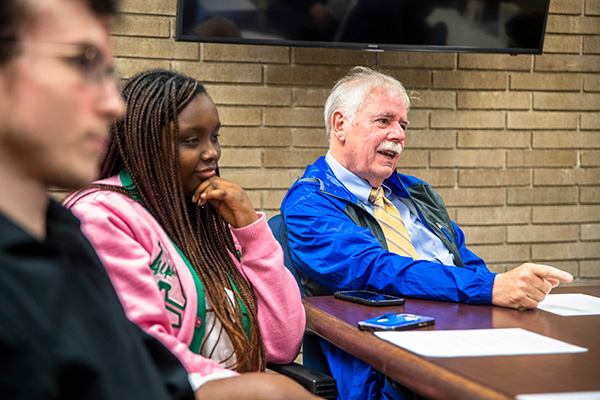
“What is the law for us?” Socrates presents this question in Plato's dialogue "Minos." This question served as the basis of study for Sources of American Jurisprudence, a distinguished group of government undergraduate students from the spring ‘23 semester.
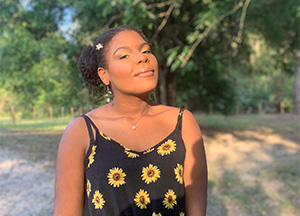
A young fairy named Ollie Petal was just awarded her first human wish to grant. However, her rival, July Evergreen stole the human’s wish. Now, Ollie and her best friend Bumble Willow must search through the land to find it before time runs out. “Wishful Thinking,” an original theatre production by English major Deja Gamble, teaches us that only we can forge our own destinies and not let others define who we are.
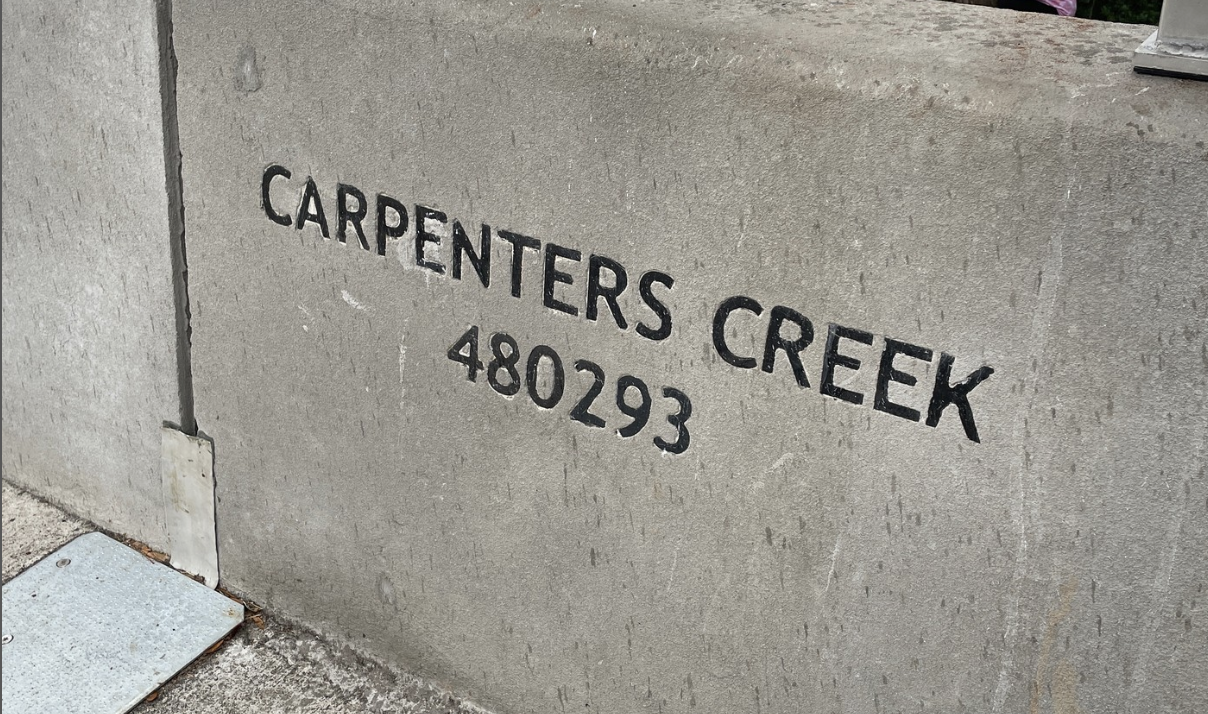
Not that long ago, Carpenters Creek was characterized by a community where families enjoyed recreation and children built childhood memories. Now, local nonprofits and community organizations are joining efforts to revitalize the creek. This past fall semester, in support of the revitalization efforts, students in Dr. Jamin Wells’ Oral and Community History uncovered the history of the creek.
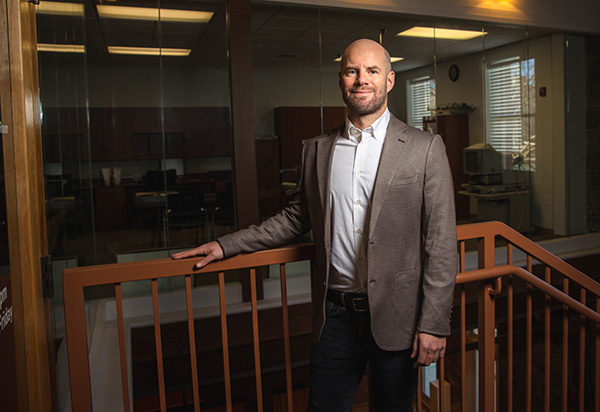
Dr. Jamin Wells, University of West Florida associate professor and director of UWF’s Public History Master’s Program, was recently appointed to the Florida State Historical Marker Council. The Florida Department of State selected Wells based on his accomplishments in the field of Public History.
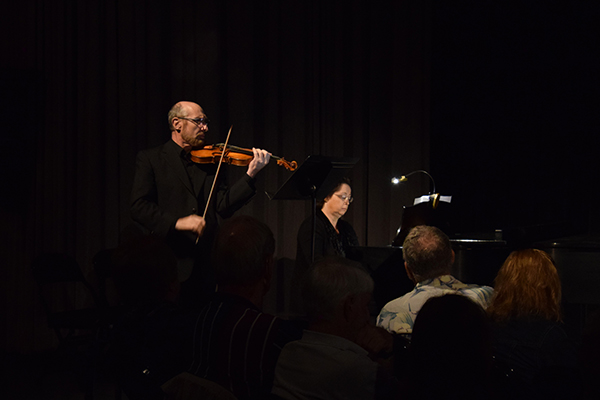
When WSRE, the local PBS member television station, invited Dr. Leonid Yanovskiy to participate at a public presentation of the new documentary film, “The U.S. and the Holocaust” at the WSRE Amos Performance Studio at Pensacola State College on Thursday, September 8th, 2022, he readily volunteered to perform at the event.
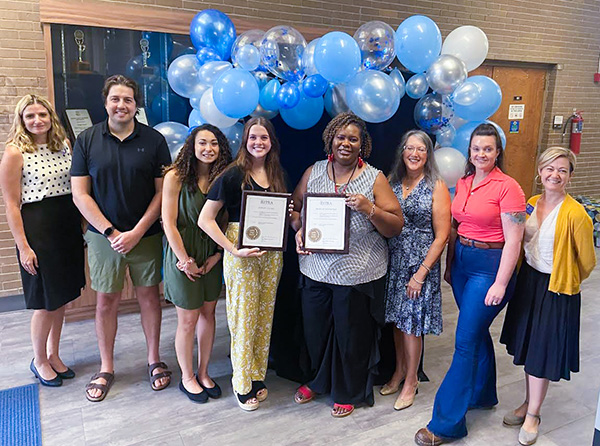
The FPRA conducts The Golden Image Awards annually to recognize outstanding public relations programs in Florida. The organization encourages and promotes the development of public relations within the state.
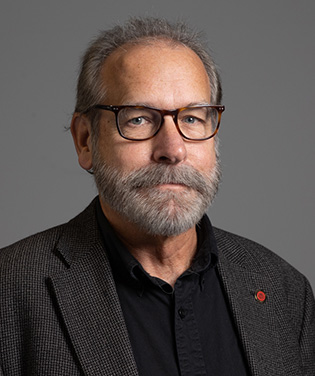
The Carol V. Ruppe Distinguished Service Award was established in 1990 to honor those individuals who have contributed sustained, outstanding service to the society. The award was named after Ruppe, who combined her expertise in archaeology and library science. She left a legacy and example of volunteer service for others to follow.
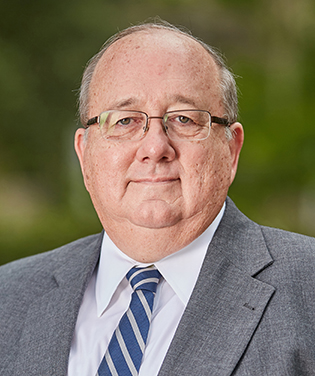
Dr. Steve Brown shares a personal encounter during Dr. Martin Luther King's assassination. His story is positioned against the backdrop of the South's desegregation era.
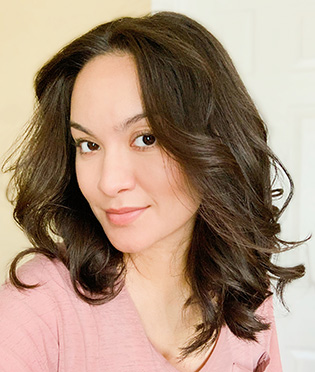
Nicole Allen's story highlights the discrimination she has experienced through the "eyes of a brown Asian."
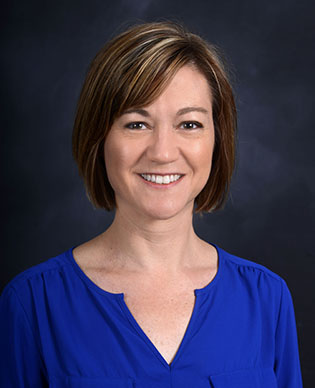
The UWF Department of Communication welcomes Dr. Kelly Carr, associate professor of communication, as incoming department chair.
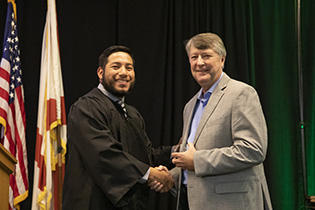
"I am so thankful to have been taught by one of the best and so grateful that he took real world experiences and turned them into lessons. Thank you Professor Scott for all you have done for the University of West Florida and the numerous lives you have changed for the better, including mine." - Whitney Vaughan Fike, ‘07 alumna
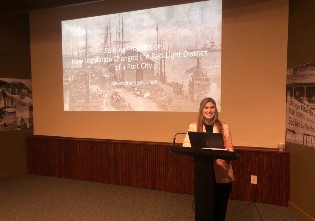
Students from fourteen universities participated in the North American Society for Oceanic History, hosted by UWF. Dr. Jamin Wells, UWF assistant professor of history, received accolades for his most recent publication.
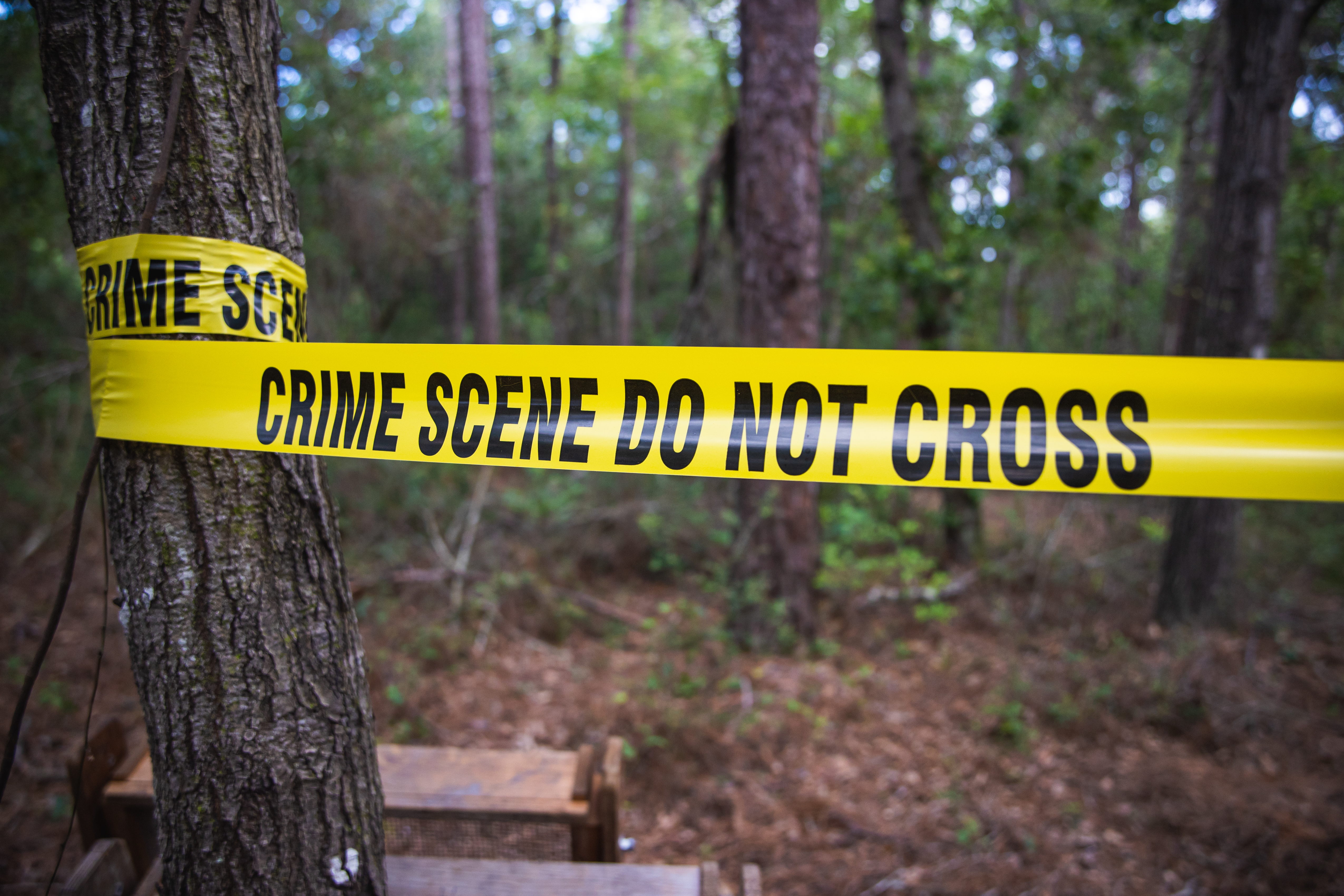
University of West Florida is the only institution in the nation offering a five-week forensic anthropology field school. The major goal of the five-week field school was to train students in standard forensic methods for the discovery, documentation, and recovery of human skeletal remains.
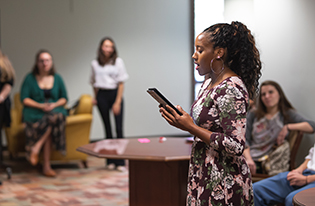
The College of Arts, Social Sciences and Humanities is proud to honor the CASSH Outstanding Graduate Students and Outstanding Graduate Assistants of 2021. These accomplished students have excelled academically and professionally. They have demonstrated the excellence that represents our college and university well.
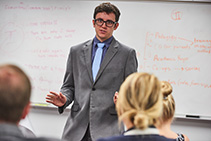
As a Nepali citizen, I want to share my experience of how the words of my advisor have changed my views of race in the world. I was the president of the worldwide organization Future Business Leaders of America (FBLA) at my high school, where people of all races and backgrounds come together to achieve one goal: gain leadership skills in order to form one disclosure community.
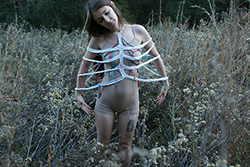
In the shadows of recently highlighted racial tensions in the US, UWF art and English students have been contributing to the conversation through their scholarly and creative works. The students’ works have primarily been inspired by the writings of two renowned poets, who virtually visited with UWF students and participated in a community conversation.
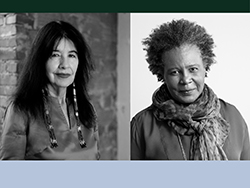
At the heels of the most recent outbreak of racial tensions in the US, UWF students and faculty members have been responding. Through scholarship, community conversations and academic inquiry, spaces have surfaced to propel the cultivation of critical thought and understanding.
.jpg)
We are proud to recognize the 2021 UWF Honors Convocation CASSH faculty awardees. Honors Convocation is an annual celebration where faculty and students are recognized for their distinguished academic achievements. It is one of the university's most important academic traditions.
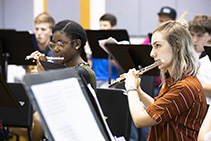
After a successful launch of the UWF High School Honor Band in early 2020, UWF took an event-hosting hiatus in Spring 2021 due to COVID-19 restrictions. However, thanks to high school partners in Santa Rosa County, honor band efforts continued.
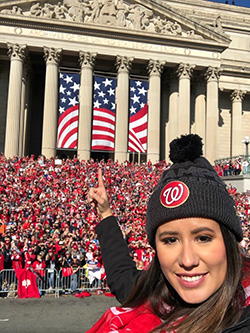
From UWF, Melissa Strozza, 2011 graduate, made a home run in her field. She’s an immigrant, female minority and now a part of Major League Baseball history. In 2019, Melissa Strozza, 2011 UWF graduate, was a part of baseball history. She played a key position for the Washington Nationals, fielding the team’s communication efforts all the way to the World Series.
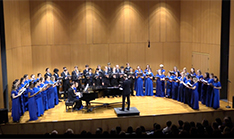
Under the leadership of Dr. Peter Steenblik, UWF associate professor of music and director of choral activities, the UWF Singers have been gaining prominent recognition. Melissa Watson, UWF student said, “Being in the UWF Singers has helped me realize how much of an impact music has on our lives.”
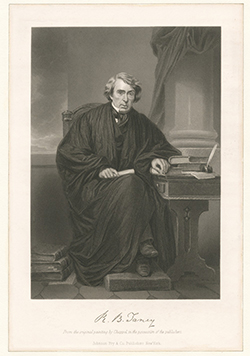
Roger Brooke Taney (1777 - 1864) played a significant role in shaping American politics for more than three decades. Thanks to a large grant, faculty research on Taney’s contributions will be made available on an open-source digital platform. Drs. David Ramsey and Kelly Carr offer insight into the significance of Chief Justice Roger Brooke Taney's role in shaping the American political landscape.
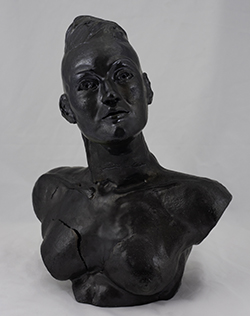
Now alumnae, two UWF students recently received international recognition from Kappa Pi, the oldest and largest international college and university honorary art fraternity.
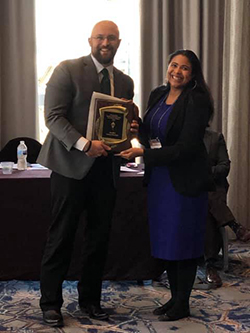
Dr. Adam Blood, instructor of communication and director of the UWF Speech and Debate team, recently received the Bob Derryberry Outstanding New Forensics Educator Award.
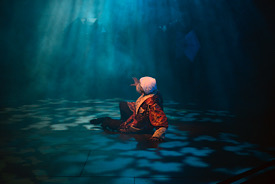
Students and faculty members will demonstrate their acting skills and their commitment to their craft this evening when the Department of Theatre puts on its annual production of “A Christmas Carol: A Ghost Story of Christmas.”
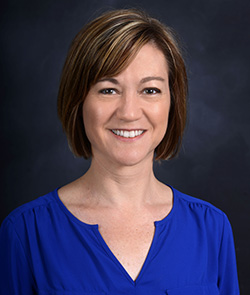
Dr. Kelly Carr, assistant professor of communication with the UWF Department of Communication, recently received a prestigious award for her book "The Rhetorical Invention of Diversity: Supreme Court Opinions, Public Argument, and Affirmative Action."
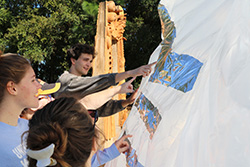
Thomas Asmuth, UWF associate professor of art, has worked to inspire his students to create innovatively and collaborate artistically across disciplines. On November 16, Asmuth’s initial encounter with the Maker Faire will come full circle with the launch of the inaugural Pensacola Mini Maker Faire. Asmuth and Dr. Joe Piacenza, UWF assistant professor of mechanical engineering, along with a strategic planning team and more than 90 ‘makers,’ will bring the Pensacola Mini Maker Faire to life.
.jpg)
With his first album under Big Round Records, the award-winning Dr. Joseph Spaniola says he is on a quest to engage the hearts and minds of his audience with the powers of communicative music. Spaniola’s ESCAPADE: Music for Large and Small Ensembles (a Parma, Big Round Records release) was recently named a Top Ten Album of Fall 2019 by the Global Music Awards.
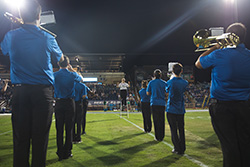
As the sun sets on the stadium and the crowd shouts “Blue and Green,” band members lift their instruments to play the UWF Fight Song and welcome the Argos to the field for another night of college football! However, a band member’s game day starts long before the game’s kickoff.
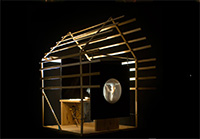
Jim Jipson, UWF art professor, recently shared his insight into creativity and the innovative mind at an installment of the Center for Entrepreneurship's Speaker Series.
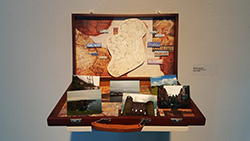
"I aspire to capture moments of wonder and beauty so they felt, at least a little, through a still photograph in time," said participant Rachel Oliver. The Art Gallery at the University of West Florida is pleased to present "The Irish Experience Exhibition," which is on display at The Art Gallery at UWF through September 28.
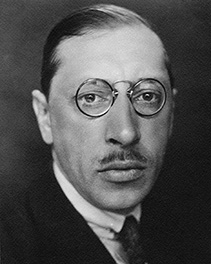
"Today, we customarily take freedom of artistic expression for granted, but there were periods in recent European history when such freedom was denied," Dr. Leonid Yanovskiy. "Banned and Forbidden - Prohibited Musical Masterpieces" features music and poetry banned from performance and publication by oppressive regimes: Nazi Germany and the Soviet Union. Join for the performance Thursday, Sept. 12, noon at Old Christ Church, Pensacola.
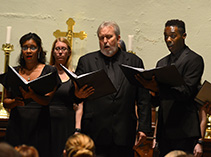
“Some people have been singing in choirs for more than thirty years, and other people have started their choral journey with the UWF Summer Festival Chorus. Every voice matters and the fact that we can all come together and create beautiful music in only a week is impressive,” says Karma Metzger. The UWF Festival Chorus will perform Session One: Rutter & Wilberg, June 8, 7:30 p.m.
-20180330_Honors_Convocation_086.jpg)
On Friday, March 30, UWF held the annual Honors Convocation, which recognized exemplary students and faculty during the 2017-2018 academic year. The UWF Jazz Combo performed during the event, under the direction of Dr. Joseph Spaniola, director of Jazz Studies at UWF.
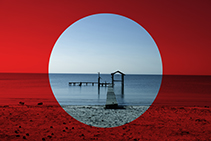
Dr. Jocelyn Evans, professor of political science and Honors Core 2 professor, has been working for several years on evaluating the quality of public spaces. The Honors Core 2 class theme for the 2019 spring semester was 'community.' Students investigated spaces and aspects of community identity around public beach access.
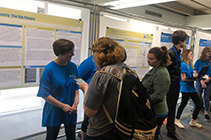
This spring, UWF students laid the groundwork for introducing installations to UWF inspired by those in Leiden, Netherlands. Students explored the notion of text as art, bringing students into contact with artists, graphic designers, museum curators, and campus and city planners.
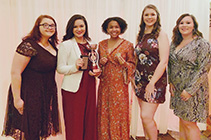
UWF speech and debate competitors were recently recognized for achievements at a biennial convention. On March 20-25, the University of West Florida Speech and Debate team competed at the Pi Kappa Delta Biennial Convention and Tournament, hosted by Hofstra University, in Hempstead, New York.

On March 29, University of West Florida Communication students covered the 2019 Rapiscan Systems Classic, a branch of the PGA Senior tour in Saucier, Mississippi.
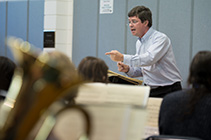
March 30 marks the final UWF Symphonic Band concert for Rick Glaze, UWF associate professor of clarinet and director of bands and the UWF Bachelor of Music Education program. Since 1990, Glaze has spent the past 29 years providing a formative influence on the UWF Department of Music.

The University of West Florida on the Emerald Coast will officially offer a Bachelor of Arts degree in Communication and a Minor in Communication this fall.
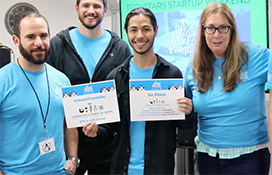
This year’s winner of the Startup Weekend Pensacola (SWP) was a CASSH student, junior Nicolas Estrada. Estrada won for his pitch of an innovative ticketing system that would serve as both concert memorabilia and a tool for measuring data related to the event.
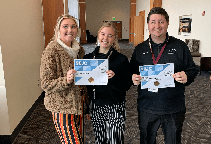
This spring, UWF Communication students have been recognized for excellence in journalism.
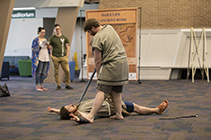
"Daily Life in Ancient Rome" was a student-produced, two-day multidisciplinary event that was supported by the University of West Florida’s Department of History. The event welcomed student involvement from disciplines within the arts, sciences and humanities, making it a STEAM-inclusive event. Some of the represented disciplines included marine biology, art, mechanical engineering, history, digital art and bioarchaeology.
In this article, we caught up with Nicholas Miller, a UWF alum who shared thoughts on his experience at UWF and answered questions about his life after graduation.
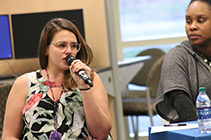
On Feb. 13, the UWF Center for Entrepreneurship welcomed the fine and performing arts faculty for “Leadership in the Arts.” UWF music and theatre faculty and PMA curator focused on how artists in music, theater and art define leadership within their respective fields.
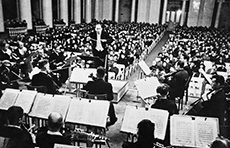
UWF World Languages to host highly respected rakugo, Japanese storyteller, performer.
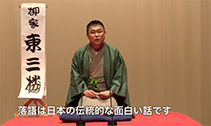
UWF World Languages to host highly respected rakugo, Japanese storyteller, performer.
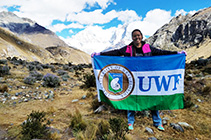
“All of my classes at UWF gave me knowledge of the world and people."

The American Journalism Historians Association recently awarded Dr. Tubbs, UWF assistant professor of communication, honorable mention for the association’s Margaret A. Blanchard Dissertation Award.
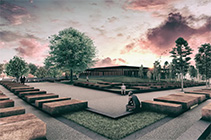
“Thousands of African Americans are unknown victims of racial terror lynchings, whose deaths cannot be documented, many whose names will never be known. They are all honored here.” - Message on the wall of The National Memorial for Peace and Justice
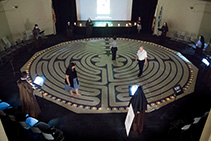
Come, walk and experience the powerful healing of the labyrinth October 22-24 at the University of West Florida.
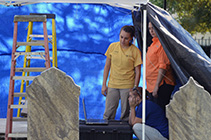
UWF and the Archaeology Institute have been involved with St. Michael’s preservation efforts for the past 19 years, dating back to the late 1990s. Each year, UWF archaeology and history students, faculty and staff have collaborated for the preservation efforts.
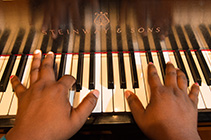
This summer, UWF students received recognition for participation in international piano festivals.
DSC06083.jpg)
This summer, two UWF alumni toured the UWF Archaeology and Anthropology Terrestrial and Maritime Field Schools. Here, they share their insights from the field.
DSC05995.jpg)
Archaeology and Anthropology students from this summer's Maritime Field School shared their experiences during archaeological investigations at the Emmanuel Point II and III sites.
DSC06013.jpg)
“Stop. Breathe. Think. Act.” On the dive platform of UWF’s Maritime Archaeology Field School this summer, students recited this mantra together as they prepared to dive on the Emanuel Point II and III shipwrecks. The mantra reminded students what to do in an emergency situation and represented a commitment to communicate and support one another beneath the waves.
DSC05389.jpg)
Archaeology and Anthropology students from this summer's Terrestrial Field School shared their experiences during archaeological investigations at the Luna Settlement site.
DSC05413.jpg)
In 1559, Tristán de Luna y Arellano led 1,500 Spanish colonizers to settle in Pensacola on their way to South Carolina. Spread across a rectangular stretch of flat land measuring 300 by 250 meters, the settlement included soldiers and a few of their families. This summer, a Division of Anthropology and Archaeology field school gave graduate and undergraduate students the opportunity to get their hands dirty—literally and figuratively—at the Luna site.
Germany-Trip-Group-Photo.jpg)
When International Studies student Gabriella Valenti saw the Sachsenhausen concentration camp in Oranienburg, Germany with her own eyes, she felt the visceral reality of history in a way she never had before. Valenti said, “You can hear about the Holocaust all you want from lectures, and you can see the graphic pictures that send a message, but you won’t get the gut-dropping feeling that you get when you're actually stepping on the grounds of a concentration camp.”
20170123_MVRC_005.jpg)
Malachi Berry has been interested in the field of archaeology since he was a child and his grandfather took him to see paleontological exhibits. Now, Berry is following that passion as an archaeology major at UWF. Between those childhood days with his grandfather and his start at UWF, Berry served for five years in the United States Marine Corps.
summer-festival-chorus.jpg)
“After participating last year, I could not wait to be part of this year's Summer Festival Chorus! I love everything about it - the challenging musical selections, the diverse demographics of the choir, seeing old friends and meeting new ones,” says Margi Baker, 2015 UWF graduate in music performance and current assistant director of UWF Advancement Services.
UWF-50th-Anniversary-Gala_20161116_035.jpg)
Jennifer Adkins is a UWF alumna who graduated in 2008 with an M.A. in Public History and spent a few years as an adjunct professor in the UWF Department of History. She also loves to sing. This year, Adkins is one of many participants, including students, alumni and community members, of UWF’s Summer Festival Chorus, which will hold “Hayden Lord Nelson Mass,” its final performance, June 30, at 7:30 PM at UWF.
CubedMural-ExhibitionCropped.jpg)
From October 2017 to June 2018, the University of West Florida’s College of Arts, Social Sciences and Humanities presented seven installments of the Experience UWF Downtown Lecture Series. The series, made possible by generous donors and the PACE funding promotes the value of liberal arts in building and sustaining contemporary culture. The 2017-18 installments did so by opening thought-provoking dialogues about how public art operates in the current social and political moment.
Renee-Richardson-headshot.-Music-Alumna-(1).jpg)
UWF alumna Renée Richardson has been admitted to the prestigious Academy of Vocal Arts as a resident artist for 2018-19. Richardson graduated from UWF in 2015 with a Bachelor of Music in voice performance and went on to earn a professional studies degree from the Cleveland Institute of Music.
Alyssa-LeeNASA-1-(2).jpg)
Alyssa Lee, spring 2018 University of West Florida graduate and current UWF graduate student, is pursuing a career that is out of this world. This fall, Lee will begin the NASA Pathways Program with the Armstrong Flight Research Center. The program provides opportunities for students and recent graduates to be considered for federal employment upon completion.
RacineFranks2018.jpg)
Racine Frank, UWF international studies student, will soon embark on a ten week internship with the U.S. Embassy in Peru. Frank will work in the Consular Section of the embassy June 4 - Aug. 10 and will focus on immigration and visa processing during her time there.
20171117_Communications_TV_Production_Class_01.jpg)
The UWF Department of Communication has taken a step toward growth with the addition of a new editing suite. The suite is specialized toward video editing for TV production classes and UWF Argo News. Erica Dukes, a communication major focusing on telecommunications stated, “The new editing bay is an excellent way to get to know, help, and learn from your peers. I can see with this editing bay that the major will be able to grow more.”
-stock-img-bridge.jpg)
“Fall down seven times, get up eight” - a Japanese proverb. On Friday, March 9, I attended the 2018 Women in Leadership Conference, hosted by the College of Business Executive Mentor Program. Below is a metaphor I created while observing the opening speaker and the first panel.
Pensacon-3Dprints.png)
On Feb. 22, 2018, UWF’s Innovation Institute hosted an evening with “Star Trek” actor Robert Picardo as part of the pop culture convention Pensacon. The event included a tour of the Innovation Institute, a photo with Picardo, and a souvenir bag, which featured limited-edition figurines created by UWF graphic design students.
024-c.jpg)
At 6 p.m. on Sunday, Feb. 25, JCPenney will close its doors for the night. Thirty minutes later, the store will reopen to let UWF students and family in for the Argos Suit Up event. The event will run from 6:30 to 9:30 p.m.
UWF-English-Professor-Jon-Fink.jpg)
Jonathan Fink, UWF Department of English professor and director of creative writing, was recently awarded the Merit Award in Poetry for 2017. On Feb. 3, The Philosophical Society of Texas granted the award for his book “Barbarossa: The German Invasion of the Soviet Union and the Siege of Leningrad” (Dzanc, 2016).
20180205_Typewriter_Project_018.jpg)
On Jan. 16, ‘The Typewriter Project: The Subconscious of the City’ made its debut in Pensacola, Fl. According to the project’s website, “The Typewriter Project is a series of site-specific literary installations which invite passersby to join in a citywide poetic exchange that exists in both analog and digital realms.”
28227057299_92a1d6bfa6_k-(1).jpg)
On Jan. 1, The Art Gallery (TAG) at the University of West Florida, held its closing reception for the “Points of Departure, a Foundation-level Student Art Exhibition.” The exhibition ran from January 8 – January 25 and featured over 168 pieces of student artwork ranging from drawing, ceramics, painting, photography, digital art and graphic design. On Feb. 8 TAG reopens a new exhibit with the artwork of New Orleans based artist Michael J. Deas and UWF faculty member Gregory B. Saunders.
20180116_Seligman_First_Amendment_Lecture_Series_007.jpg)
On Jan. 16, former Sen. Bob Graham, an 18-year U.S. senator and an eight-year governor of the State of Florida, paid a visit to the University of West Florida. During his address he spoke about youth participation in America with governmental affairs.
20170512_CASSH_Forensics_010.jpg)
The UWF Speech and Debate Team has had a strong start to the 2017-2018 competition season. The last weekend of September, the team competed in Tallahassee for the first tournament of the season.